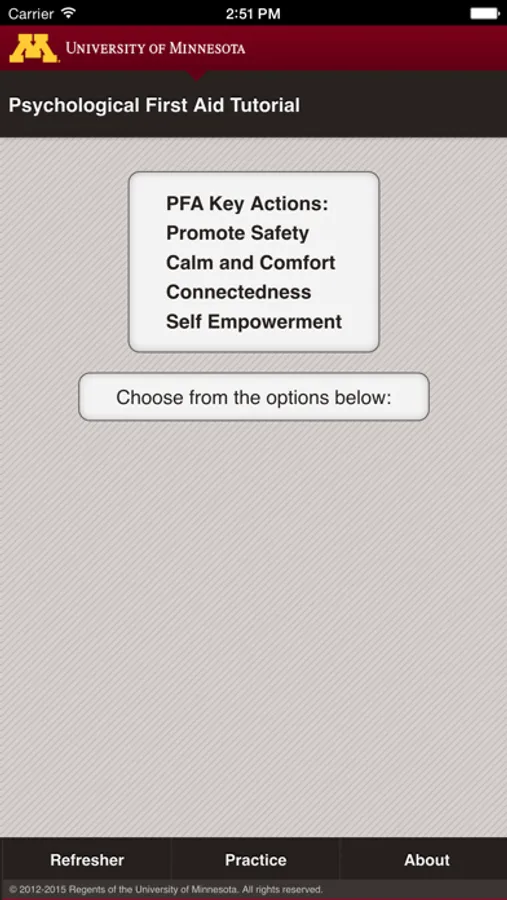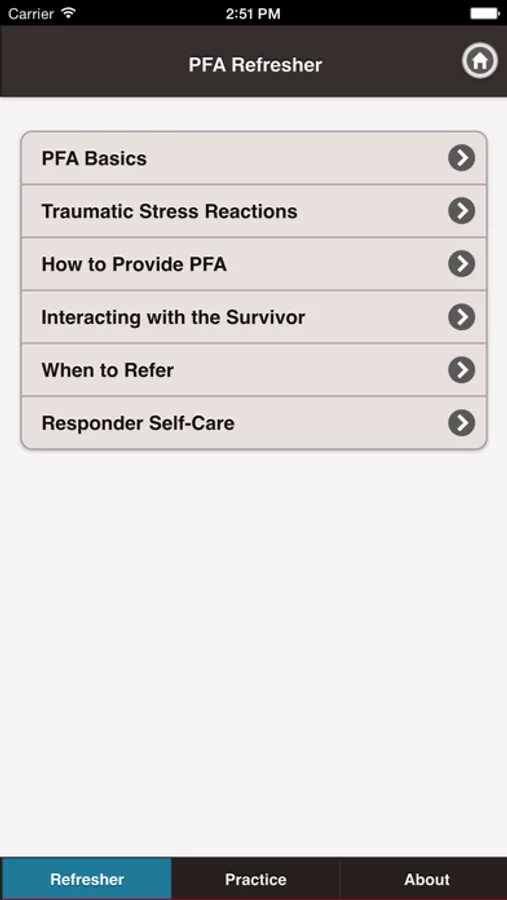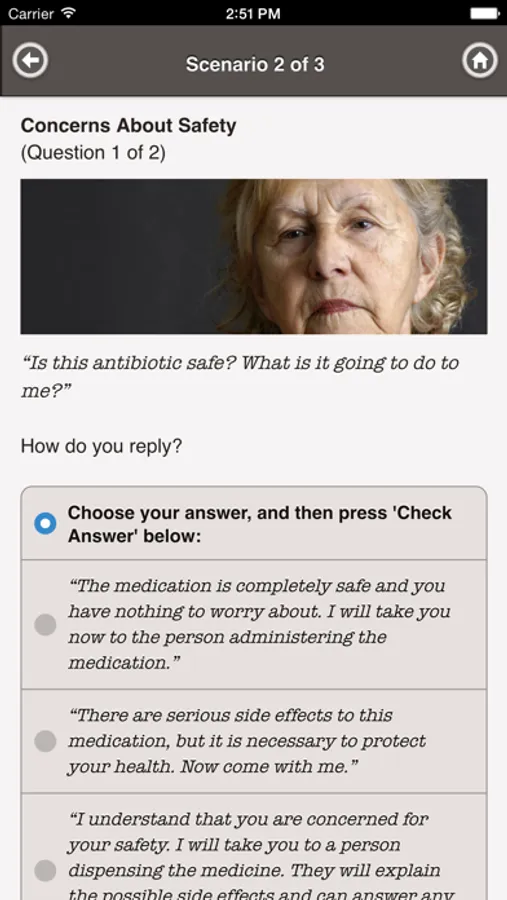Psychological First Aid (PFA) Tutorial
Regents of the University of Minnesota
5.0 ★
store rating
Free
AppRecs review analysis
AppRecs rating 4.5. Trustworthiness 45 out of 100. Review manipulation risk 28 out of 100. Based on a review sample analyzed.
★★★★☆
4.5
AppRecs Rating
Ratings breakdown
5 star
100%
4 star
0%
3 star
0%
2 star
0%
1 star
0%
What to know
⚠
Unusually uniform ratings
100% of sampled ratings are 5 stars with very little variation
About Psychological First Aid (PFA) Tutorial
The Psychological First Aid (PFA) Tutorial provides a quick and thorough review for those who have previously received training to provide PFA. First responders, health care providers, mental health providers, MRC volunteers, students, and others will find this an easy to use resource while in the field following a traumatic event, natural disaster, public health emergency, act of terrorism, or personal crisis.
Key Features:
* Reviews the four core actions of PFA providers:
- Promote Safety
- Promote Calm and Comfort
- Promote Connectedness
- Promote Self Empowerment
* Reviews ways to engage with disaster survivors in a supportive manner
* Lists common reactions to traumatic events
* Outlines how to recognize when a referral to a mental health provider or other provider is indicated
* Practice scenarios provide an opportunity to check understanding
* Reviews self-care actions appropriate for PFA providers and responders before, during and after responding to an emergency event
This training resource was developed by University of Minnesota: Simulations, Exercises, and Effective Education Preparedness and Emergency Response Learning Center (U-SEEE PERL), which is supported in part by the Grant Number 1U90TP000418 from the Centers for Disease Control and Prevention (CDC). The contents are solely the responsibility of the authors and do not necessarily represent the official views of CDC. U-SEEE PERL Principal Investigator: Debra K. Olson.
Key Features:
* Reviews the four core actions of PFA providers:
- Promote Safety
- Promote Calm and Comfort
- Promote Connectedness
- Promote Self Empowerment
* Reviews ways to engage with disaster survivors in a supportive manner
* Lists common reactions to traumatic events
* Outlines how to recognize when a referral to a mental health provider or other provider is indicated
* Practice scenarios provide an opportunity to check understanding
* Reviews self-care actions appropriate for PFA providers and responders before, during and after responding to an emergency event
This training resource was developed by University of Minnesota: Simulations, Exercises, and Effective Education Preparedness and Emergency Response Learning Center (U-SEEE PERL), which is supported in part by the Grant Number 1U90TP000418 from the Centers for Disease Control and Prevention (CDC). The contents are solely the responsibility of the authors and do not necessarily represent the official views of CDC. U-SEEE PERL Principal Investigator: Debra K. Olson.


